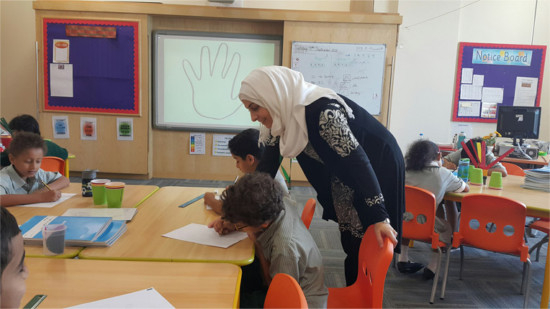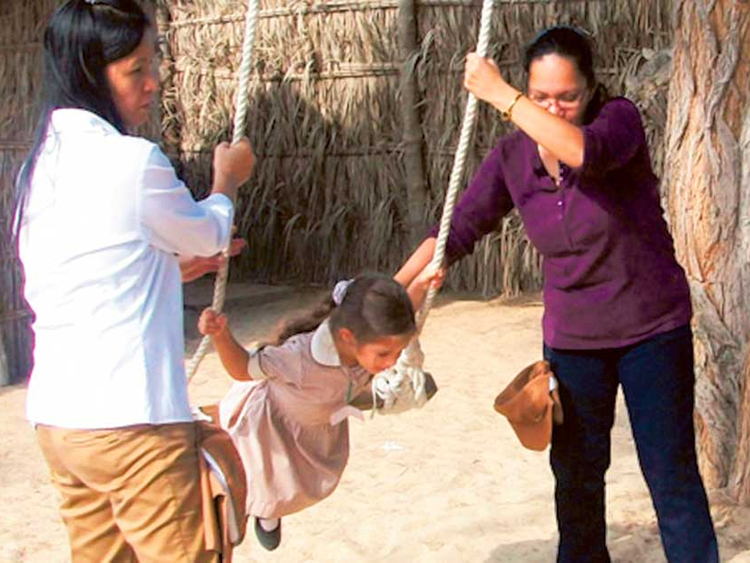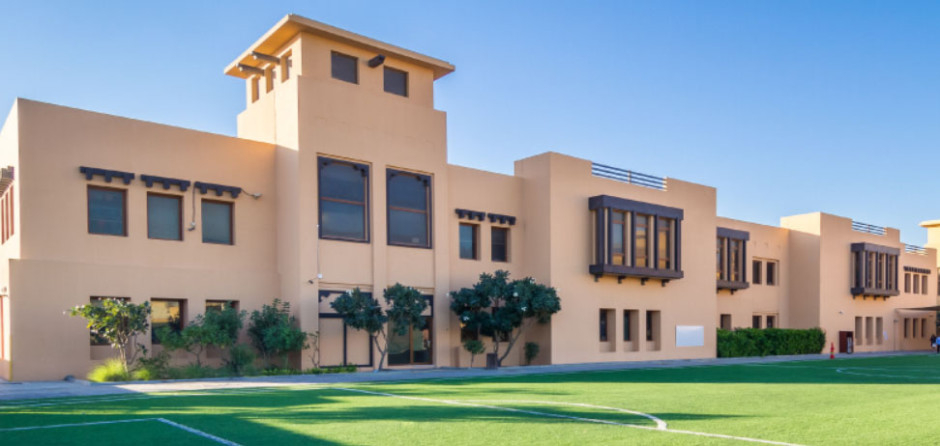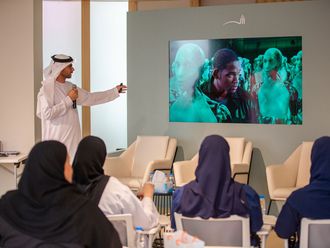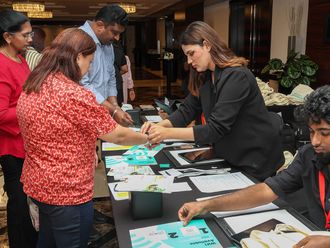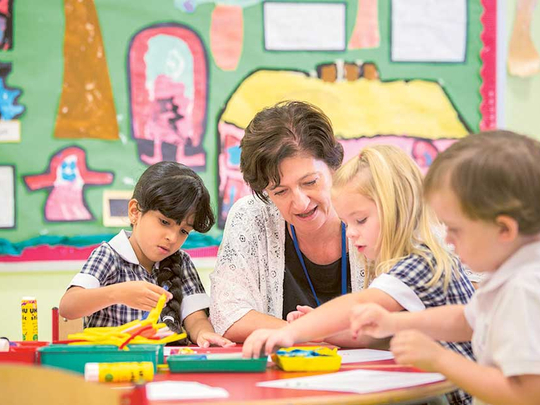
Abu Dhabi: Four private schools in the emirate of Abu Dhabi have attained the highest ranking in the latest round of inspections conducted by education regulator Abu Dhabi Education Council (Adec), it was announced on Tuesday.
This is the first time that any school has reached the “outstanding” rating since private school checks were introduced in Abu Dhabi in 2009.
In a statement, the Adec announced that 74 per cent of 110 inspected schools were found to maintain satisfactory to high-performing standards. These results are part of the Adec’s fourth round of checks into private institutions.
The top-rated schools are Al Mushrif Primary and Al Bateen Secondary School, Al Muna Primary School, Bloom Academy (Brighton College Al Ain) and Raha International Schools.
Six schools, of which four are located in Al Ain, have been, however, judged “very weak”, the lowest possible rank.
There are currently 186 private schools in the emirate, and in the 2015-2016 academic year, they enrolled more than 236,000 students.
“This is the first time we have “outstanding” schools in Abu Dhabi, which is a great indicator that [educational institutions] are doing a superb job, especially those that have demonstrated significant improvement,” said Hamad Al Dhaheri, executive director of private schools and quality assurance at the Adec.
Each private school in Abu Dhabi is inspected once in about every two years. The fourth round of inspections, which began in 2015-2016, will continue during the upcoming academic year (2016-2017).
Among the 110 schools inspected so far, 31 are American curriculum schools, 25 schools offer British curriculum, 27 Ministry of Education (MoE) curriculum, 11 Indian curriculums and 16 offer other curriculums, including Pakistani and the International Baccalaureate.
According to the Adec statement, 40 per cent of schools have improved their rankings this time, but quality standards at four schools have declined.
While four schools have achieved the top rank (outstanding), 12 have been judged “very good” and 27 “good”. A further 38 schools were found to be “acceptable”, while 23 have been found to be “weak” and six “very weak”.
Parents who spoke to Gulf News appeared satisfied with the quality of education and teaching.
Megha Goyal, a homemaker and mother of two from India, said she especially values the frequent communication and feedback from her daughter’s teachers.
“They are quick to respond to our queries, and help us keep track of her progress,” she said. Her daughter attends fourth grade at a British curriculum school in the capital that has been rated as very good.
Diane Newton, a mother of three from Australia, said she is more or less satisfied with the British curriculum school that her three children attend.
“I would say its biggest strength is the top-notch teaching that it offers,” she said.
S. Alex, a homemaker from India, said she would however prefer to see the implementation of differentiated teaching methods, and a chance for children to engage in more extracurricular activities.
“My son attends a top-ranking British curriculum school, and I can vouch for the level of attention teachers provide in the foundation stages. But now that he is almost in middle school, I would like to see him get the opportunity to pursue the sports that he loves. Basically, I feel that schools should allow children to develop based on their personal interests and strengths,” she added.


